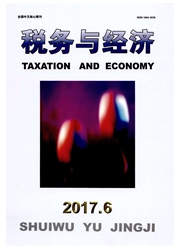

 中文摘要:
中文摘要:
随着房企将转型的目光投向社区,“企业社区参与”作为一种构建良好且长久的企业一社区关系的社会责任策略,逐渐受到企业界重视。基于价值共创理论框架解析万科长期开展社区参与的过程,揭示该过程如何帮助房企解决向“社区综合服务商”转型所面临的多层面挑战。研究表明,共创式企业社区参与是由5个相关联要素组成的持续适应的过程;战略主张强调从战略重塑和组织结构变革入手以优先解决企业层面的转型挑战;在战略主张的影响下,氛围构建和资源调动两个互动连接机制是平台搭建的基础,也是房企着手解决产品层面和消费者层面转型挑战的基础性任务;后续的共创行为强调制定明确的互动规则和制度以保证可持续性是进一步解决这两层面转型挑战的关键;共创结果实现共同获益是房企顺利转型为服务平台运营商的象征。
 英文摘要:
英文摘要:
As the real estate enterprises set community as the future direction to transformation the corporate community involvement strategy has become a popular way to build well and long- term corporate-community relationship. We draw on value co-creation model to analyze the long-term process of community involvement conducted by Vanke, and to reveal the solution of multifaceted transformational challenges faced by real estate enterprises under the process of corporate community involvement. It shows that, corporate community involvement under value co-creation is an adapting process made up of five interdependent and interlinked pillars. As the first step, managerial structure implies the priority of strategy reshaping and matching organizational structure transform to address the firm-level transformational challenges. As the foundation of platform developing, the parts of interactive environment and resources guided by the former should be treated as necessary and basic tasks to deal with the product-level and consumer-level transformational challenges. The subsequent part of co-production is the core task to address the mentioned challenges about platform developing by setting explicit interactive rules and systems. As the results, the realization of shared benefits is the symbol of successful transformation to platform provider and operator for real estate firms.
 同期刊论文项目
同期刊论文项目
 同项目期刊论文
同项目期刊论文
 期刊信息
期刊信息
